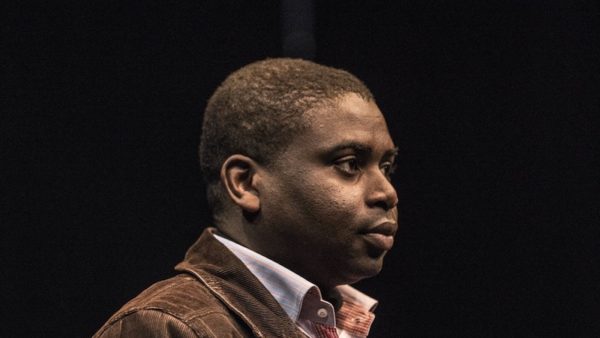
The winners of the 2017 South African Literary Awards have been announced. Here they are, with excerpts from their citations.
The Literary Journalism Award, for a body of work, went to Don Makatile and Phakama Mbonambi.
Don Makatile is a journalist whose main interest is books and writers. He started working as a journalist in 1995. The publications he worked for include Drum, Sowetan, Sunday World and now Sunday Independent. Throughout all the two decades he worked as a journalist, Makatile has consistently been focusing on writing about writers and their work, thereby promoting African and South African literature through popular media. He is also the publishing editor of a website, www.makatilemedia.com.
Phakama Mbonambi has, in the true spirit and founding vision of SALA’s Literary Journalism Award category’s mandate, made significant contribution to the promotion and development of literature through writing about and analysing South African literature. He is a journalist and the publishing editor of Wordsetc, a literary journal he founded in 2007 to shine a spotlight on new South African writing. He, like his predecessors in the illustrious persons of Sol Plaatje, John Langalibalele Dube, Tengo Jabavu, Mweli Skota and a sterling army of men and women in the years gone by, has had a singular and foresighted determination to establish a literary journal and ran it almost singlehandedly for a number of years. Except for a few philanthropists here and there, he paid from his own pocket to deliver this most outstanding journal on a regular basis.
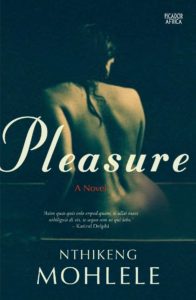 The K. Sello Duiker Memorial Literary Award went to Nthikeng Mohlele for Pleasure.
The K. Sello Duiker Memorial Literary Award went to Nthikeng Mohlele for Pleasure.
Nthikeng Mohlele narrates a tale of a father-son relationship that becomes a destructive obsession with betterment. Contesting against shadows that loom larger in one’s imagination is an unwinnable fight.
The plot of Pleasure is complex with sub-plots Mohlele manages to fuse together as the narrative progresses. As a result the novel becomes a potpourri of stories about love, competition, confusion and madness. It’s a whole new approach to South African writing that elevates Mohlele’s storytelling to greater heights.
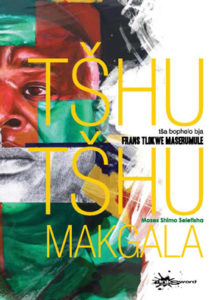 The First Time Published Author Award went to Moses Shimo Seletisha for Tšhutšhumakgala – Tša Bophelo bja Tlokwe Frans Maserumule.
The First Time Published Author Award went to Moses Shimo Seletisha for Tšhutšhumakgala – Tša Bophelo bja Tlokwe Frans Maserumule.
Moses Seletisha achieves something many contemporary Sepedi authors try but fail to do; stay true to the language and its rich heritage regardless of an invasive pressure to conform to what has been recently observed as colloquial degradation of African languages. He refuses to bow to European linguistic hegemony as he weaves a literary biographical rug about the life and times of Tlokwe Frans Maserumule; freedom fighter, political activist and community leader.
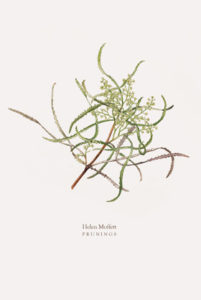
The Poetry Award went to Helen Moffet for Prunings and Simphiwe Ali Nolutshungu for Iingcango Zentliziyo.
Helen Moffet’s poetry is characterised by accessibility and a consistent structure that draws the reader to her work. It also adds clarity to her poetic style. Moffet deliberately chose the title Prunings to indicate the actual pruning of unwanted branches. In this instance it seems to denote pruning unwanted poems, stanzas, lines and phrases. Some poems literally get pruned in public glare with Moffet leaving evidence of their straying from the required structure.
[Simphiwe Ali Nolutshungu’s] is a very beautiful collection of isiXhosa poetry that pulls the strings of the heart. It has rhyme and rhythm that flows freely. It expresses deep pain over loss, a deep sense of yearning. The author is open about feelings of both love and hatred. There is no mistaking his love for his language, isiXhosa, for his country, South Africa and the African continent at large. We are am expecting great things from him in the context of literature in general, and poetry in particular.
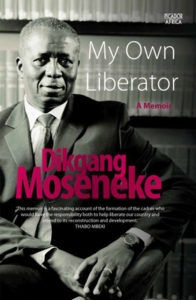 The Creative Non-Fiction Award went to Dikgang Moseneke for My Own Liberator.
The Creative Non-Fiction Award went to Dikgang Moseneke for My Own Liberator.
This a wide-ranging memoir in which the author traces his roots and pay homage to the people and institutions which shaped into becoming a leading juridical figure by overcoming many daunting challenges in the course of his life. In 1963, on the third anniversary of the Sharpeville Massacre, at the age of fifteen he was arrested, charched with sabotage and sentenced to ten years of incarceration on Robben Island for participating in anti-apartheid activities as a member of the Pan Africanist Congress. He recounts how his family values passed on to him by his paternal and maternal grandparents, his parents and teachers which emphasised honesty, respect, dedication, hard work and perseverance as the foundations for a just and ethical life.
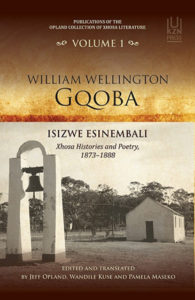 The Literary Translator’s Award went to Bridget Theron-Bushell for Die Dorsland Trek (The Thirstland Trek); Jeff Opland and Pamela Maseko for D.L.P Yali-Manisi: Iimbali Zamanyange, Historical Poems; and Jeff Opland, Wandile Kuse and Pamela Maseko for William Wellington Gqoba: Isizwe Esinembali Xhosa Histories And Poetry (1873 – 1888).
The Literary Translator’s Award went to Bridget Theron-Bushell for Die Dorsland Trek (The Thirstland Trek); Jeff Opland and Pamela Maseko for D.L.P Yali-Manisi: Iimbali Zamanyange, Historical Poems; and Jeff Opland, Wandile Kuse and Pamela Maseko for William Wellington Gqoba: Isizwe Esinembali Xhosa Histories And Poetry (1873 – 1888).
[Die Dorsland Trek] deals with a period of South African history from 1874-1881, but the subject matter is one that has been grossly neglected in South African literature. The historical account weaves a tale (historically accurate) of a tapestry of inhabitants of all races and cultures during the time. As such, not only the story of the “trekkers” is told, but also that of all the other people that participated in this fascinating part of history.
[D.L.P Yali-Manisi: Iimbali Zamanyange, Historical Poems] is a wonderful collection of historical poems by Yali-Manisi. One cannot help but applaud the work of the translators who have tried to keep the original meaning and expression although not always easy or possible. The collection is great because it supports the oral history mode to tell the African story, this is made more exquisite by the voice of the imbongi. The reader cannot miss Yali-Manisi’s rhythm in the poems, rhythm that reminds one of great Xhosa praise poets such as Mbutuma and Mqhayi. Yali-Manisi tells the history of Mfecane, Mlanjeni’s War and Nongqawuse’s calamity with the expertise of a great story teller and lists the facts like a great historian would. It is the creative prowess of the translators that makes one vouch for the strength of this collection.
[William Wellington Gqoba: Isizwe Esinembali Xhosa Histories And Poetry (1873 – 1888)] is a great collection of poetry and history. The tapestry it displays shows an incredible connection between culture, language and poetry. This is one book that would be invaluable as we search for the decolonisation of knowledge. Gqoba was trained by missionaries, the colonialists, yet the topics covered by the collection in this volume makes the reader pose questions to that system. The Great Debate on Education, The Xhosa Idioms, the religious debate as well as the history of the Xhosa are relevant topics as we search for relevant knowledge in the contemporary Africa. The book will also enable the reader in Africa a chance to dig deep into Africa’s past whilst also trying to understand the Western notions of knowledge. Furthermore, Gqoba’s works put into context the reason to fight selfish Eurocentric knowledge.
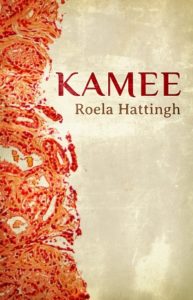 The Nadine Gordimer Short Story Award went to Roela Hattingh for Kamee.
The Nadine Gordimer Short Story Award went to Roela Hattingh for Kamee.
This neatly published volume of short stories is of an exceptionally high standard which is kept up in each story. Language use is unpretentious yet effective. The stories are well structured and suspense is kept up. These are stories of real people and real lives lived in the South Africa of today, yet valid for all times and places. Endings are often ambivalent and open, encouraging reader involvement. The narratives are striking, powerful and original. The author is in complete control of her genre and the stories meet the common criteria of good short stories. Characterization and depiction of time and space is effective. The writer has an outspoken own style.
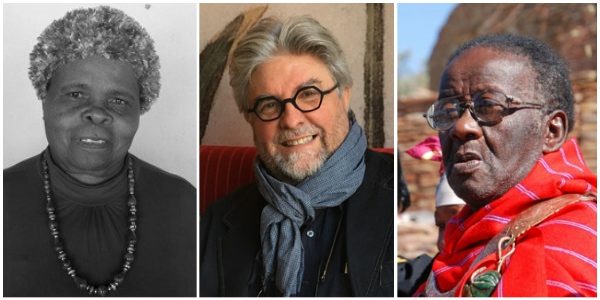
The Lifetime Achievement Literary Award went to Credo Vusamazulu Mutwa, Matshediso Aletta Motimele, and Etienne van Heerden.
Vusamazulu Credo Mutwa’s contribution as a storyteller is largely ignored. His books, written since the 1960s until around 2007, are a major contribution to Africa and the world’s knowledge reservoir. He doesn’t just tell stories from observations but also brings in the element of being a seer into his books. His humble residence in the village of Magojaneng in Kuruman, Northern Cape is a destination for many visitors from here and abroad, which is indicative of him being a widely respected figure. Born on 21 July 1921 in KwaZulu-Natal, he is respected largely for his predictions of world events, including the destruction of New York’s World Trade Centre in 2001, the 1976 June 16 uprising, the plague of HIV, Chris Hani’s assassination, load shedding and the ousting of President Thabo Mbeki.
Matshediso Aletta Motimele (77) is an authority when it comes to Sepedi drama, poetry and prose. She is also a performing artist with a long list of successful productions she has executed in her professional career spanning over thirty twenty years. She came to prominence during the days of Radio Lebowa as one of its foremost playwrights, penning dramas that went on to win accolades. Her radio dramas, usually 30 episodes long have contributed to a burgeouning community of dramatists and thespians in Limpopo Province. It is noted that her durability in both performance and literary arts have contributed to the emergence of renowned playwrights such as Paul Mahuma Rapetsoa an d his successful emsemble of thespias.
Etienne van Heerden is one of the most highly regarded modern Afrikaans novelists. He has published 10 widely acclaimed novels, as well as a considerable body of academic work. His creative texts have been translated into 12 languages. He has won all the major South African literary awards, some of them more than once. Van Heerden is seen as one of a generation of Afrikaans writers who contributed significantly to open up the Afrikaner psyche to change. In all his narratives South African society is depicted as a whole. Most of his major works display features of magical realism – an art form which is most suitable to write about South African society and history because it tries to convey reality in a nuanced way, by depicting different layers of realism, time frames and worldviews at once.
The Posthumous Literary Award, for a body of work, went to Akunta, Kabbo, Kasin, Diakwain, and Han kass’o.
The materials deal with the land, the rain, the history of the first people, the origin of the moon and stars, animals, cosmology, beliefs, ceremonies, art and information of the individual lives of the informants who had come to Cape Town as prisoners of the British Crown and were released into Bleek’s custody at his residence in Mowbray for linguistic and cultural research.
The Wilhelm Bleek and Lucy Lloyd collection of !Xam and !Kun narratives, verses, songs, chants, drawings and other materials consisting of over 150 notebooks running in some 13 000 pages is considered a unique cultural and literary collection which has been recognised by United Nations Education, Science and Cultural Council and entered into memory of the World Register.
The Chairperson’s Award, for a body of work, went to Themba Christian Msimang.
Congratulations to all the winners.









COMMENTS -
Reader Interactions